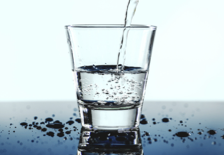 Dehydration can happen in any age group, but conditions can be particularly dangerous for young children and older adults. Although mild to moderate dehydration can be reversed by drinking more fluids, more severe conditions need immediate medical treatment.
Dehydration can happen in any age group, but conditions can be particularly dangerous for young children and older adults. Although mild to moderate dehydration can be reversed by drinking more fluids, more severe conditions need immediate medical treatment.
CAUSES
Dehydration can result when people do not drink enough water and fluids. Excessive sweating from exercise can also be a factor, but ailments like vomiting, severe diarrhea, fever, and increased urination from undiagnosed or uncontrolled diabetes can be a factor.
SYMPTOMS
Waiting until you are thirsty is an unreliable guideline. You should be drinking plenty of fluids and food high in water, like fruits and vegetables, throughout the day. Here are signs you may be dehydrated:
- Extreme thirst
- Less frequent urination
- Dark-colored urine
- Fatigue
- Dizziness
- Confusion
COMPLICATIONS
Dehydration can result in complications like:
- Heat cramps, heat exhaustion, and heatstroke
- Urinary tract infections, kidney stones, and kidney failure
- Seizures from an imbalance of electrolytes
- Hypovolemic shock, which results from a drop in low blood pressure and a decline of the amount of oxygen in the body
Although dehydration is treatable, it can become severe, and you should seek medical treatment if you:
- Have had diarrhea for 24 hours or more
- Are irritable or disoriented
- Can’t keep down fluids
- Have bloody or black stool
Source: Mayo Clinic and American Academy of Dermatology
